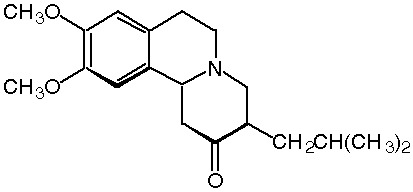WASHINGTON -- Additional Long-Term Safety and Efficacy Data for Investigational Therapy to Be Presented
Prestwick Pharmaceuticals, Inc., a CNS specialty pharmaceutical company, announced today that lead investigators from the Huntington Study Group will present results from a pivotal Phase III trial of tetrabenazine for the treatment of chorea associated with Huntington's Disease (HD) during a satellite symposium held in conjunction with the American Neurological Association 129th annual meeting in Toronto, Ontario, October 2-6.
Chorea can be a debilitating feature of a number of neurological diseases, most notably HD. The condition is characterized by excessive, involuntary and repetitive movements, which may involve the face, limbs or the entire body. There is no approved treatment for chorea associated with HD in the United States.
Tetrabenazine is a first-of-its-kind, dopamine depletor currently available in some European markets and Australia as XENAZINE(TM), and in Canada as NITOMAN(R) for the treatment of hyperkinetic movement disorders. Although currently an investigational drug in the U.S., tetrabenazine has demonstrated a profound effect on chorea, with 80 percent of patients having marked to good improvement. Side effects can include drowsiness, insomnia, akathisia, and depression. In countries where approved for use, tetrabenazine is considered by neurologists as first-line treatment for chorea.
Tetrabenazine study results to be presented at the 18th Annual Symposia on Etiology, Pathogenesis, and Treatment of Parkinson's Disease and Other Movement Disorders at the ANA meeting include:
--A Randomized, Double-blind, Placebo-controlled Study of Tetrabenazine in Patients with Huntington's Disease: presented by Frederick J. Marshall, MD, on Sunday, October 3 from 2:30 p.m. to 2:45 p.m. in the Grand West Ballroom at the Sheraton Centre Toronto Hotel
--Safety and Efficacy of Tetrabenazine for the Treatment of Huntington's Disease and Other Choreas: presented by Joseph Jankovic, MD, on Sunday, October 3 from 12 p.m. to 1:30 p.m. in the Grand West Ballroom of the Sheraton Centre Toronto Hotel
Approximately 30,000 Americans suffer from HD, and 150,000 are at immediate risk for developing the disease, according to the Huntington Study Group of the University of Rochester, NY.
Prestwick anticipates filing a New Drug Application (NDA) for Tetrabenazine with the U.S. Food and Drug Administration (FDA) in the near future for the treatment of chorea associated with Huntington's Disease. The NDA filing will be supported, in large part, by data from the Phase III data presented at the movement disorders symposium. The company was granted fast track and orphan drug status by the FDA.
ABOUT THE SYMPOSIA
Conducted in association with the ANA, the 18th Annual Symposia on Etiology, Pathogenesis, and Treatment of Parkinson's Disease and Other Movement Disorders is organized by the Parkinson Study Group, Huntington Study Group, Dystonia Study Group, Myoclonus Study Group, Tourette's Syndrome Study Group, Cooperative Ataxia Group and the Movement Disorder Society. All abstracts presented at the peer-reviewed, full-day program have been published in the September issue of Movement Disorders.
About the Huntington Study Group
The study "A Randomized, Double-blind, Placebo-controlled Study of Tetrabenazine in Patients with Huntington's Disease", called "TETRA-HD", was organized and conducted by the Huntington Study Group (HSG), a non-profit, cooperative group of Huntington's disease experts from medical centers in North America, Europe and Australia who are dedicated to improving treatment for persons affected by Huntington's disease. For more information, call the HSG at 800-487-7671, or visit their web sites at www.Huntington-Study-Group.org and www.HuntingtonProject.org.
ABOUT PRESTWICK PHARMACEUTICALS
Prestwick Pharmaceuticals, Inc. is an emerging specialty pharmaceutical company that focuses on treatments for CNS disorders. The company has multiple product candidates in clinical development for Huntington's Disease, Parkinson's Disease, and schizophrenia.
COPYRIGHT 2004 Business Wire
COPYRIGHT 2004 Gale Group



